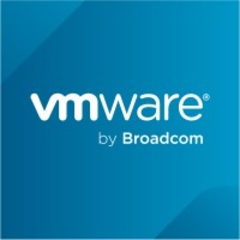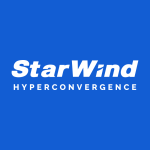What is our primary use case?
The primary use case is that we're getting ready to deploy a VDI solution across the campus and our healthcare network.
How has it helped my organization?
The opportunity gained with the relationship we have now is limitless, as new features and products roll out, especially with today's announcements: the news about microsegmentation, the RDS in the cloud with AWS, as well as some security features. It's a constant evolution for us. That's really why we're with vSAN.
What is most valuable?
The most valuable feature for us, long-term, is the integration with VMware that we're going to be using. We're currently using AirWatch, we're working in Workspace ONE. We want to make sure that our VDIs, with the integration of the Windows 10 solution - as well as any-device, anywhere, anytime mobility - work, yet still offer them the ability to gain access to that VDI. That is huge for us.
What needs improvement?
If you want to get down to the nuts and bolts of room for improvement, we would really like them to look at what Nutanix did for day-one/day-two operations deployment: Bringing in the equipment, getting it deployed, getting it setup, and ease of use of one-click for deploying our 30-node solution. With vSAN we had to go into each one individually and set it up.
For how long have I used the solution?
Still implementing.
What do I think about the stability of the solution?
What do I think about the scalability of the solution?
It absolutely scales, that's the beauty of it.
How is customer service and technical support?
We actually involved VMware from the beginning. We brought in Nutanix, Simplivity, and vSAN technicians, as well as integration with our hardware platforms. But the true key was bringing those guys in, helping us set up the best environment, and seeing exactly what our endpoint was going to look like with our business integration. That was better than, "Yay, we can deploy 40 VDIs in 10 seconds." What does that do for the environment we're currently existing in? So for them to help us set up as a true test in our actual environment, that was a huge help, from all three that we tested. It was really impressive.
How was the initial setup?
I am the manager of the guys who will be implementing the product. We recently received our client from Dell and we have installed it. My two main CI guys are here with me at VMWorld 2018 this week, so we're on a temporary hiatus, but we did get one full rack installed so far, and we're getting ready to deploy the vSAN to it.
The solution is only as good as the technicians you have and the investment put into proof of concept testing. My two technicians are some of the smartest people. You always hire someone smarter than you and I definitely did with these two guys. They've already got it worked out. We had the tasks laid out, what we were going to do day-one, day-two, rolling it into a test environment, and then production. We already had that done before we had the equipment on site.
What was our ROI?
We're just wrapping up year-two of our five-year ROI plan and this VDI solution, with vSAN, is part of it.
What's my experience with pricing, setup cost, and licensing?
We purchased a VMware Enterprise agreement so vSAN was already included with what we had. It was just a smart choice, given where we were heading eventually, to go with vSAN. That was one of the deciding factors.
Which other solutions did I evaluate?
We just wrapped up proofs of concept for both hardware and software. We did vSAN, we did Nutanix, and we did Simplivity. We looked at HPE hardware and we looked at Dell EMC hardware, among others.
We actually decided to go with Dell with a vSAN solution, even though Nutanix had better day-one/day-two operations, straight out of the box for us. Long-term, we felt that the vSAN solution itself was going to serve us in terms of to utilizing and leveraging the power of VMware, either going to a private and hybrid-cloud solution or public and hybrid cloud solution.
As far as the hardware goes, we didn't really have that much of a preference among the three, but we did see that Dell EMC's OpenManage solution for managing the hardware, the bare metal itself, was much more productive than the other two.
What other advice do I have?
You'd want to give it a 10 out of 10 based on what they're doing in the future, but if you always give a company a 10 they'll feel like they're already there. I would actually rate vSAN one below Nutanix, as far as maturity of the model goes.
I would give vSAN a very solid eight. There is room for improvement to catch up to Nutanix. Nutanix is definitely a nine. Again I don't like giving anybody a 10 because we always want to see what the next evolution or innovation is that they're bringing to the table. The way vSAN would get to a 10 depends on how they get me to "tomorrow".
Disclosure: My company does not have a business relationship with this vendor other than being a customer.













